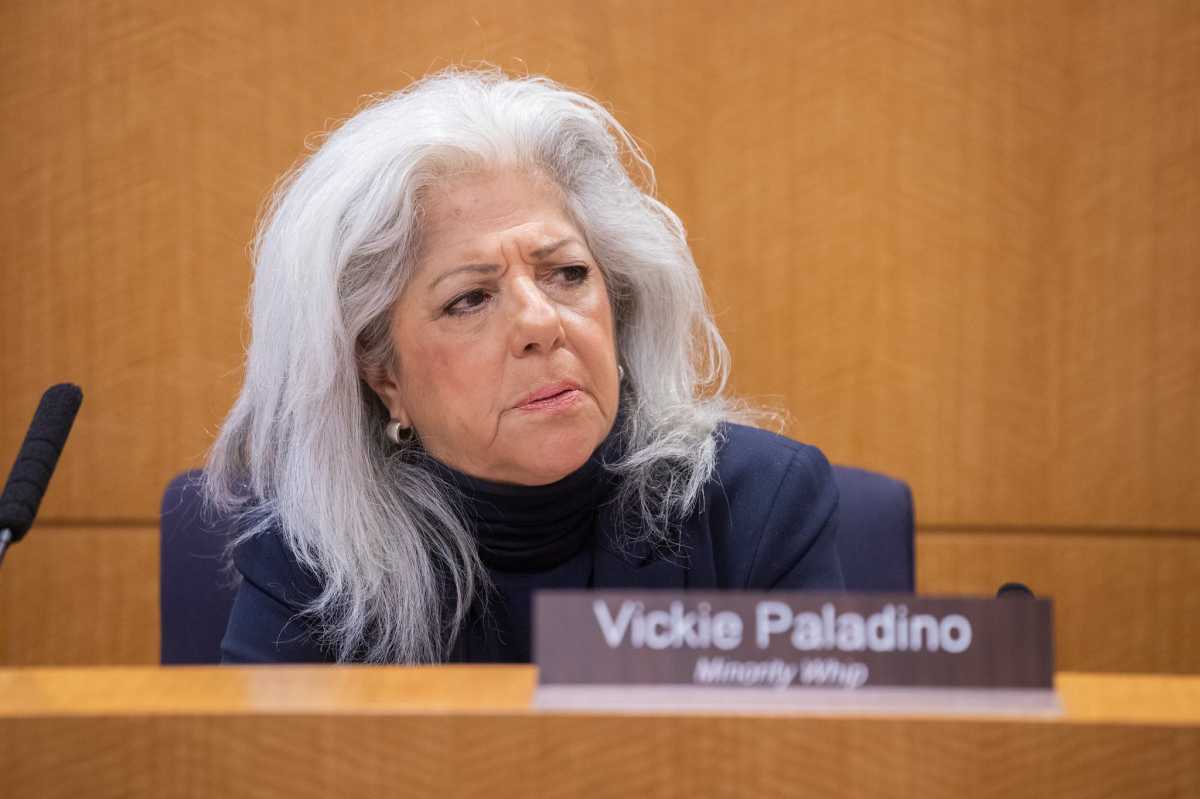Thousands of poor Queens patients cared for under the state Medicaid program will be plunged into the HMO maelstrom next March — a changeover that is being viewed with alarm by consumer groups and experts alike.
The decision to make enrollment in the managed care system mandatory for 1.5 million New Yorkers was first announced by state Health Commissioner Dr. Antonio C. Novello last August, but last week state Comptroller H. Carl McCall raised serious questions about the plan.
"The state Department of Health has done a poor job of ensuring that health maintenance organizations in New York have the capacity to absorb the millions of Medicaid recipients being forced into managed care," McCall said.
The initial changeover will affect 54,341 Medicaid patients in northeastern and central Queens in March, said Rob Kenny, a spokesperson for the State Department of Health. He expected the number would increase in the coming months as part two of the program is phased in.
McCall’s comments were included in an audit released by the comptroller’s office.
Kenny countered, "The comptroller doesn’t know what he’s talking about."
But advocates for the poor have been extremely wary of the administration’s policy, sharply questioning whether or not the system can absorb 1.5 million Medicaid recipients into managed care.
Dennis Johnson, vice president of external affairs for The Children’s Health Fund, and a former member of the New York City Task Force on Managed Care, said the new system poses great risks to children and the homeless.
"Of course, we have great anxieties about the changeover," he said. "We’re talking about medically underserved people who will now be faced with a ratio of one physician to 1,700 patients."
Johnson said that CHF was particularly concerned about homeless families are being forced into managed care. "Can you imagine a homeless family with their chaotic lifestyle dealing with the managed care system? The homeless are supposed to be exempt, but they are receiving letters addressed to them at their shelters."
Johnson warned that this system would soon take hold in Queens and its poor residents would face considerable turmoil.
Helen Cho, a social worker at the Flushing YWCA said that 40 percent of her clients, all immigrants, depend upon Medicaid. "They count on it," she said, "and they are very concerned about any changes.."
Dr. John Connolly, author of "The ABCs of HMOs," agrees with McCall about the switchover from Medicaid to managed care. "He makes a good point when he questions whether there will be sufficient numbers of HMOs available within the areas where patients reside."
Connolly added the public is confused about managed care. He cited a recent Louis Harris Poll that said over half, (55 percent), of those people surveyed had never heard of the term "managed care" and almost a third, (31 percent,) said they never heard of the term "HMO."
"Once again, New York leads the nation in protecting the health of our most vulnerable citizens," he said. "We are welcoming millions of medically needy New Yorkers, including our children and our elderly, into medical homes where they will receive the health care they need and deserve to live longer and healthier lives."
Currently, 378,102 New York City Medicaid recipients have enrolled voluntarily in managed care plans. Mandatory enrollment of the additional 1.1 million eligible Medicaid recipients will be phased in over a two-year period.






























